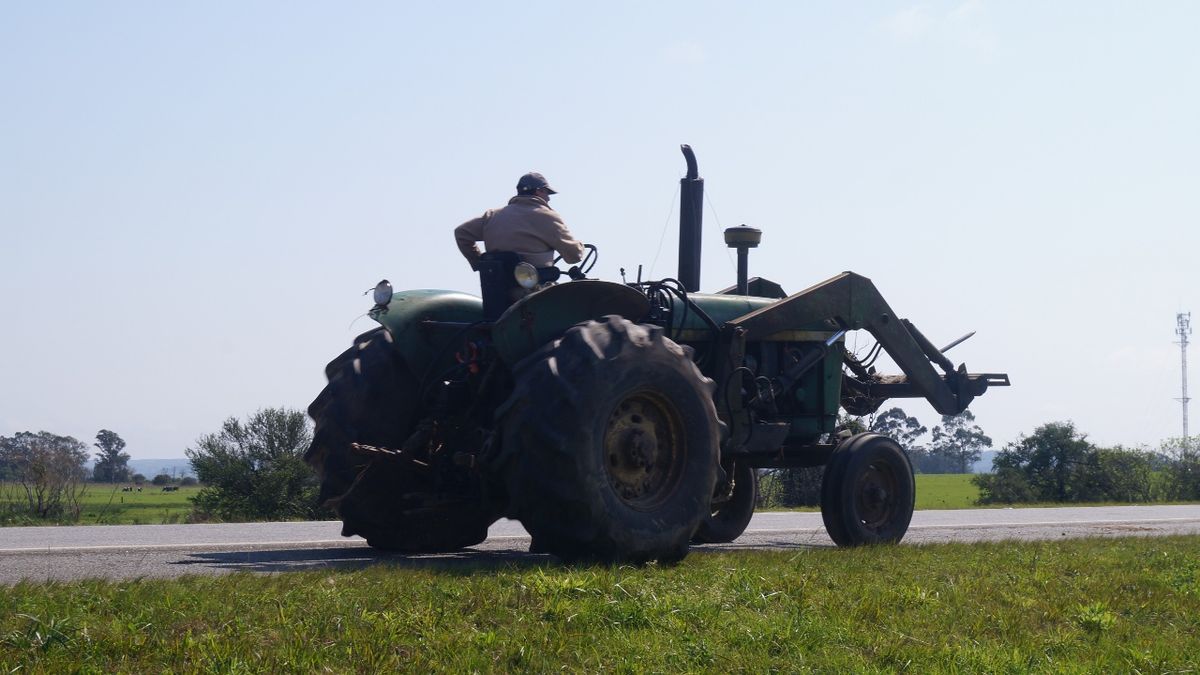The president of the CAF, Pablo Perdomo, pointed out the drought, the exchange rate and the drop in commodity prices as the main problems.
The drought historically, the weakness of exchange rate and the fall in commodity price marked a “complex” year for the agricultural cooperatives of Uruguay, As explained by the president of the Federated Agrarian Cooperatives (CAF), Pablo Perdomo.
The content you want to access is exclusive to subscribers.
2023 could be a year to forget the agricultural sectors, but it will be marked in history as the one that was the scene of the worst drought of the last century in Uruguay. Of course, the agricultural cooperatives were also affected by this situation, to which was added an international context that was not favorable for business and a problem of loss of competitiveness at the local level that further weakened the sector.


In that sense, the year “began with a third consecutive dry year in the springs and very poor yields of agricultural and fruit and vegetable crops,” Perdomo explained in dialogue with Radio Monte Carlo. “Later, he delved into a topic of prices: commodities fell a lot, meat fell more than 25%; grains, in some cases it remained, in others it fell; the dairy remained a bit,” he added.
But there was a factor that was common to the entire year and that also considerably affected the returns of the agricultural sector in general, and of the cooperatives in particular: the exchange ratewhich during 2023 fell by 2.62% — added to the devaluation prior to dollar 10.35% in 2022. “For an agro-exporting country such as Uruguay, We understand that the exchange rate continues to deepen the problem, and cooperatives also have the problem that the service we provide has decreased a lot,” considered the president of the CAF.
In this regard, Perdomo pointed out that there are cooperatives that, during 2023, received only 25% of the planned grains. “Therefore, and still maintaining jobs and all the costs that it has to keep a cooperative running, this has repercussions when one crosses the line,” he said.
Employment and financing
On this point, Perdomo highlighted two particular issues. On the one hand, despite the very important state of crisis that the sector experienced last year, “cooperatives do not send people to unemployment insurance”.
“Today the cooperatives are functioning, we are companies that despite the crisis We do not retreat, we remain. That is the difference with other types of companies: we are a tool that remains in the territory, we maintain our services and labor,” said the president of the CAF.
Another point highlighted by the manager was the quick response of the Republic Bank (BROU) to the crisis that the sector was experiencing in “a quite complicated year.” “Early on, he grabbed the bull by the guampas and went out to talk with the cooperatives, with the producers for the possibility of financing which was essential so that the producer could invest in the land again, be able to sow, produce and pay the debts,” he acknowledged.
On the other hand, Perdomo questioned some pending issues for cooperatives in terms of regulations. Among them, “the possibility of knowing the cooperative act between agricultural cooperatives and the producer, and also the issue of Investment Lawwhich in the Comap “We do not qualify, we are not considered.”
Source: Ambito




